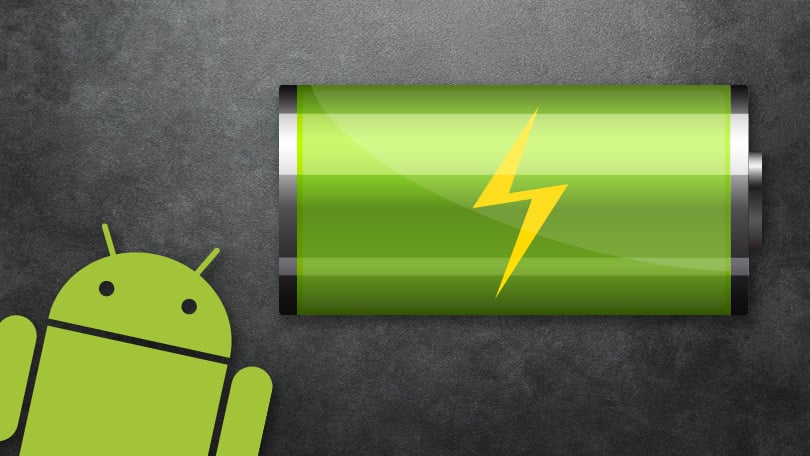Picture this: you’re out and about, relying on your Android phone to navigate, communicate, and stay connected. Suddenly, that dreaded low battery warning pops up, and you’re left scrambling for a charger. Sound familiar? Battery anxiety is a real struggle for many Android users, but it doesn’t have to be. With a few strategic tweaks and habits, you can significantly extend your phone’s battery life and keep it running strong throughout the day.
1. Master Your Display Settings
Your Android’s display is one of the biggest battery consumers, but a few quick adjustments can make a world of difference:
- Adjust Brightness: Reduce your screen brightness to a level that’s comfortable for your eyes. Avoid using maximum brightness unless absolutely necessary, especially when indoors.
- Enable Adaptive Brightness: Many Android devices have an adaptive brightness feature that automatically adjusts the screen based on ambient light. This can help save battery while still ensuring readability.
- Reduce Screen Timeout: Set your screen to turn off quickly when not in use. The shorter the timeout duration, the less battery your display will consume.
2. Identify and Manage Battery Draining Apps
Not all apps are created equal when it comes to battery consumption. Some are notorious for draining power even when not actively used. Here’s how to identify and control these battery hogs:
- Go to your Android’s Battery settings and look for a list of apps and their battery usage.
- Identify the top battery consumers, especially those running in the background.
- For non-essential apps, consider uninstalling them or limiting their background activity in the app’s settings.
- Keep an eye out for misbehaving apps that consume an abnormal amount of battery. Update or replace them if necessary.

3. Utilize Built-In Battery Saving Modes
Most modern Android devices come equipped with built-in battery saving modes that can significantly extend your battery life. While the exact features may vary by device, common battery saving techniques include:
- Reducing screen brightness and timeout
- Limiting background app refresh and syncing
- Disabling vibrations and haptic feedback
- Throttling CPU performance
To enable battery saving mode, go to your Android’s Battery settings and look for options like “Battery Saver” or “Power Saving Mode.” Customize the settings to strike a balance between battery life and functionality.
4. Be Mindful of Connectivity Settings
While staying connected is essential, wireless radios like Bluetooth, Wi-Fi, and cellular data can take a toll on your battery. Optimize your connectivity settings with these tips:
- Turn off Bluetooth and Wi-Fi when not in use: Disabling these radios can significantly reduce battery drain, especially if you’re not actively using them.
- Avoid poor cellular coverage areas: When your phone constantly searches for a strong cellular signal, it consumes more battery. If you’re in an area with weak coverage, consider enabling Airplane Mode to conserve power.
- Limit background data: Some apps continually sync data in the background, eating up battery. Identify and restrict background data for non-essential apps in your Android’s Data Usage settings.
5. Embrace the Dark (Mode)
If your Android device has an OLED or AMOLED display, using dark mode can significantly impact battery life. In dark mode, black pixels are essentially turned off, requiring less power than brightly lit ones. Many popular apps, such as YouTube, Twitter, and Gmail, offer dark themes that not only look sleek but also conserve battery.
To enable system-wide dark mode on Android 10 and later, go to your phone’s Display settings and look for a “Dark theme” or “Dark mode” toggle. On earlier versions, you may need to enable dark mode individually for each app that supports it.
6. Manage Location Services
Location services are incredibly useful for navigation, weather updates, and location-based app features. However, constantly tracking your location can put a strain on your battery. To optimize location services:
- Turn off location services for apps that don’t require them
- Use battery-saving or device-only location modes when high accuracy isn’t necessary
- Avoid using location-based features like GPS navigation for extended periods without charging
You can manage location permissions for individual apps in your Android’s Location settings.
7. Optimize Notifications
While notifications keep you informed and engaged, they can also contribute to battery drain, especially if your phone constantly vibrates or plays sounds. To minimize notification-related battery consumption:
- Prioritize notifications and disable them for non-essential apps
- Use notification channels (on Android 8.0 and later) to fine-tune notification behavior for each app
- Enable “Do Not Disturb” mode during sleep or focus times to reduce battery-draining distractions
8. Keep Your Android Updated
Software updates aren’t just about new features and security patches; they often include optimizations and bug fixes that can improve battery life. Make sure to:
- Install Android system updates as soon as they’re available for your device
- Keep your apps updated to ensure they’re running efficiently and taking advantage of the latest battery optimizations
To check for system updates, go to your Android’s Settings and look for “System Update” or “Software Update.” For app updates, visit the Google Play Store and navigate to “My apps & games.
9. Consider Using a Battery Monitoring App
While Android’s built-in battery tools are sufficient for most users, there are third-party apps that offer even more detailed insights and management options. Some popular choices include:
- AccuBattery: Provides detailed battery usage statistics and estimates, as well as charging tips to prolong battery lifespan.
- Battery Doctor: Offers a suite of optimization tools, including a power-saving mode, app manager, and charging optimizer.
- Greenify: Automatically hibernates battery-draining apps when not in use, helping to extend standby time.
When using third-party battery apps, be sure to download from reputable sources and carefully review the permissions they require.
10. Invest in a High-Quality Charger and Battery Bank
While not directly related to battery optimization, using quality charging accessories can help ensure your Android battery stays healthy and lasts longer. Consider investing in:
- A high-quality, brand-certified charger that provides the correct voltage and amperage for your device
- A portable battery bank for on-the-go charging when outlet access is limited
Avoid using cheap, off-brand chargers or power banks, as they can potentially damage your phone’s battery or even pose a safety risk.
Bonus Tips for Advanced Users
For Android power users who want to take their battery optimization to the next level, consider these advanced techniques:
- Use a custom kernel or ROM that includes additional battery-saving features and optimizations
- Experiment with underclocking or undervolting your device’s CPU to reduce power consumption (proceed with caution and research thoroughly before attempting)
- Utilize automation apps like Tasker or Automate to create custom battery-saving profiles based on your usage patterns
Keep in mind that these advanced techniques may require rooting your device or modifying system files, which can potentially void your warranty or cause instability if done incorrectly.
Conclusion: Maximizing Your Android’s Battery Life
By implementing these 10 essential tips and tricks, you can significantly extend your Android phone’s battery life and enjoy a more reliable, frustration-free mobile experience. Remember, the key to battery optimization is finding the right balance between performance and power-saving measures. Experiment with different settings and techniques to discover what works best for your unique usage patterns and needs.
Keep in mind that while these tips can help improve battery life, they’re not a substitute for responsible charging habits and battery care. Always use high-quality chargers, avoid extreme temperatures, and if possible, try to keep your battery level between 20-80% to prolong its overall lifespan.
As you embark on your battery optimization journey, stay informed about the latest Android updates and advancements in battery technology. With a combination of smart software tweaks and cutting-edge hardware innovations, the future of Android battery life looks brighter than ever.
















Add Comment